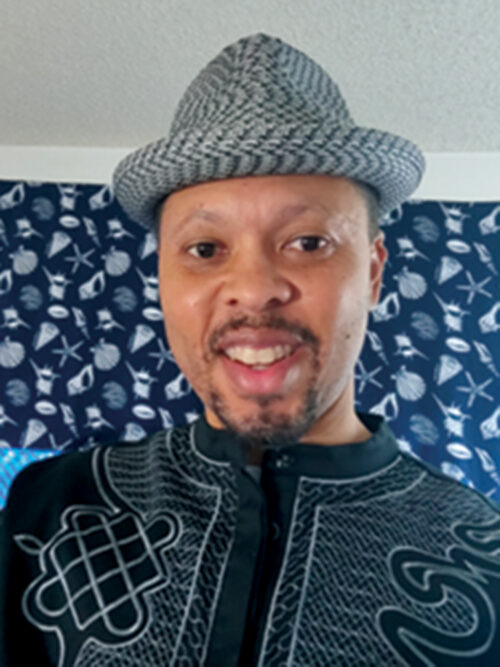
Home » Public defense in Washington has a new champion
Public defense in Washington has a new champion

January 13, 2022

Larry Jefferson Jr. will pay off his law school loans in about seven years.
That would not be remarkable if Jefferson were a young attorney, just starting out. He’s not. He’s worked as a public defender in Seattle, and, more recently, Olympia, for more than 25 years since he graduated from the former University of Puget Sound School of Law.
In 2021, the justices of the state Supreme Court selected Jefferson to lead the state Office of Public Defense, where he succeeded Joanne Moore, who retired after 23 years.
The state office employs about 16 and has a $90 million biennial budget to contract with attorneys to represent indigent defendants who appeal trial court convictions, parents facing loss of custody of their children and more.
The state’s 39 counties plus cities provide defenders in local district and superior courts.
Low pay is a significant challenge for both local offices and the state. The state Office of Financial Management noted that low pay, even relative to what other government agencies pay attorneys, is “impeding” the state’s ability to recruit and retain qualified people.
The public defender’s office experienced an 18% turnover among contract attorneys in 2018, the budget office noted.
Jefferson, who was drawn to helping others, called low pay a challenge in his new job. But he’s committed to a straightforward philosophy that if someone has a legal problem, they need an attorney.
Heavy caseloads, low pay and a patchwork of services across the state’s 39 counties add up to a shortage of qualified defenders that persists at the local and state level, including in Benton and Franklin counties.
Jefferson was previously a public defender in Thurston County and prior to that, King County, and has a lengthy list of honors to attest to his record, including receiving a Local Hero award from the state bar association.
Public defense is a calling, but low pay is a challenge, he said.
“I know when I was a public defender in Seattle, we’d lose people because they couldn’t pay their loans,” he said.
Jefferson said it is an honor and privilege to represent defendants and he works to humanize defendants and the system that represents them.
“Everyone has had a very horrible day in their life. They are not the sum of just that one day. It’s our job to figure out, to love that individual, and for a defense attorney, how to present that to a prosecutor, a jury, or a judge, that this is a human being, and they should be treated equitably and fairly,” he said.
Criminal defendants have a constitutional right to be represented by an attorney. Benton and Franklin counties operated a joint Office of Public Defense (OPD) until splitting in 2016 over rising caseloads. Both report it is a challenge to hire and retain qualified defenders. See related story page ????.
Jefferson is fond of describing Washington’s system of public defense in quilt-like terms. Coverage is robust in some areas, threadbare in others.
In addition to providing attorneys for appellate cases and family cases, it employs social workers to work out the root causes that can lead to the termination of parental rights. It’s a cause Jefferson cares about deeply.
Jefferson said he’s “hooked on social workers” who help parents navigate the system and address the issues that threaten their families before their cases get to the termination of rights stage and children face the “trauma” of going into foster care.
He cited a model in Snohomish County developed after a local law firm realized that families that could afford to pay attorneys were avoiding the first “shelter care” hearing. Those who couldn’t afford them met their court-appointed attorneys at the hearing and were more likely to see their kids go into foster care.
The Family Intervention Response to Stop Trauma (FIRST) Clinic medical-legal approach halved the number of children going into foster care, Jefferson said. He wants that replicated everywhere.
“We have to ask what doctors ask, ‘What is your family history?’” he said. “We can get to justice without even using the courtroom.”
As a new director, Jefferson doesn’t have a big wish list for the 2022 Legislature, which convenes this month for a shortened session focused on the 2022 supplemental budget.
He is seeking money to create a state-level team to handle criminal convictions affected by the state Supreme Court’s Blake ruling in February 2021. The court ruled that Washington’s felony drug possession law was unconstitutional, setting the stage for people who were convicted under it to request to have their convictions reversed.
The Blake Team could be a model for future statewide efforts, he said.
Training is another challenge. Each county approaches the job of providing public defenders in its own fashion. He’s interested in developing programs to raise the level of defense and is working with the state’s three law schools and the state bar.
“All of the burden is on the county and city to provide services. This creates justice by geography,” he said.
He believes Washington is at a decision point: Should public defense be the responsibility of local jurisdictions or the state? If it is the former, how does it ensure equitable representation? If it is the latter, how does it pay for it?
Legal
KEYWORDS january 2022





